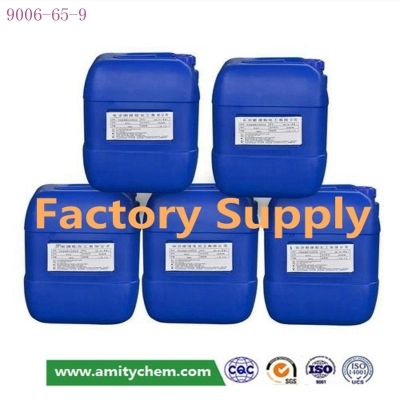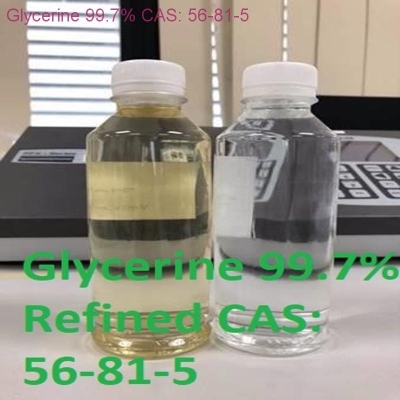-
Categories
-
Pharmaceutical Intermediates
-
Active Pharmaceutical Ingredients
-
Food Additives
- Industrial Coatings
- Agrochemicals
- Dyes and Pigments
- Surfactant
- Flavors and Fragrances
- Chemical Reagents
- Catalyst and Auxiliary
- Natural Products
- Inorganic Chemistry
-
Organic Chemistry
-
Biochemical Engineering
- Analytical Chemistry
- Cosmetic Ingredient
-
Pharmaceutical Intermediates
Promotion
ECHEMI Mall
Wholesale
Weekly Price
Exhibition
News
-
Trade Service
Introduction The results of previous studies on the comparison of the incidence of hepatocellular carcinoma (HCC) in chronic hepatitis B (CHB) patients treated with tenofovir disoproxil fumarate (TDF) and entecavir (ETV) are still controversial
.
Recently, J Gastroenterol Hepatol published a meta-analysis to assess whether there are differences in the incidence of HCC in general or specific subgroups of CHB patients treated with TDF or ETV
.
CONCLUSIONS: In CHB patients, TDF treatment was associated with a reduced risk of HCC compared with ETV treatment
.
Methods: PubMed and other databases were systematically searched for relevant studies involving the hazard ratio (HR) of HCC in CHB patients treated with TDF and ETV
.
The search date range was from January 2009 to October 2021
.
A total of 24 studies were included, including 109,865 CHB patients, of which 37,771 received TDF and 72,094 received ETV
.
The median follow-up was 42.
8 (18.
1-90.
0) months in the TDF group and 59.
6 (16.
9-91.
2) months in the ETV group
.
5.
18% (4312/83180) of Asian patients and 2.
92% (605/20692) of European/American patients were diagnosed with HCC
.
1.
Comparing the incidence of HCC in the TDF and ETV groups compared with the ETV group in the entire cohort, the TDF group was associated with a reduced risk of HCC with a pooled unadjusted HR of 0.
76 (95% CI 0.
67-0.
86; 24 studies), adjusted HR was 0.
81 (95% CI 0.
72-0.
91; 21 studies)
.
Figure 1 Comparison of the effects of TDF and ETV on the incidence of HCC in CHB patients in the entire cohort (a) HR without covariate adjustment; (b) HR with covariate adjustment.
The TDF group was associated with a lower risk of HCC compared with the ETV group, with an unadjusted HR of 0.
83 (95% CI 0.
71-0.
97) and an adjusted HR of 0.
78 (95% CI 0.
58-1.
04; 8 studies)
.
Figure 2 Comparison of the effects of TDF and ETV on the incidence of HCC in CHB patients in a propensity score analysis cohort (a) HR without covariate adjustment; (b) HR with covariate adjustment.
(adjusted HR 0.
76, 95% CI 0.
66-0.
87; 15 studies) or nucleoside (acid) analog-naïve (adjusted HR 0.
74, 95% CI 0.
65-0.
84; 18 studies) HCC in the TDF group in CHB patients The risk was lower than in the ETV group
.
Figure 3.
Subgroup analysis of the effect of TDF and ETV on the incidence of HCC in CHB patients.
Conclusions The results of this large CHB population study showed that in CHB patients, TDF treatment was associated with a lower risk of HCC compared with ETV treatment, especially for Asian patients.
Patients and/or patients who have not received nucleoside (acid) analog therapy
.
Furthermore, in addition to HCC risk, the antiviral efficacy and safety of each drug for each patient subgroup should be considered when selecting the best therapeutic agent for CHB
.
Reference: Yuan BH, Li RH, Huo RR, et al.
Lower risk of hepatocellular carcinoma with tenofovir than entecavir treatment in subsets of chronic hepatitis B patients: an updated meta-analysis[J].
J Gastroenterol Hepatol.
2022 Jan 26.
doi: 10.
1111/jgh.
15783.
.
Recently, J Gastroenterol Hepatol published a meta-analysis to assess whether there are differences in the incidence of HCC in general or specific subgroups of CHB patients treated with TDF or ETV
.
CONCLUSIONS: In CHB patients, TDF treatment was associated with a reduced risk of HCC compared with ETV treatment
.
Methods: PubMed and other databases were systematically searched for relevant studies involving the hazard ratio (HR) of HCC in CHB patients treated with TDF and ETV
.
The search date range was from January 2009 to October 2021
.
A total of 24 studies were included, including 109,865 CHB patients, of which 37,771 received TDF and 72,094 received ETV
.
The median follow-up was 42.
8 (18.
1-90.
0) months in the TDF group and 59.
6 (16.
9-91.
2) months in the ETV group
.
5.
18% (4312/83180) of Asian patients and 2.
92% (605/20692) of European/American patients were diagnosed with HCC
.
1.
Comparing the incidence of HCC in the TDF and ETV groups compared with the ETV group in the entire cohort, the TDF group was associated with a reduced risk of HCC with a pooled unadjusted HR of 0.
76 (95% CI 0.
67-0.
86; 24 studies), adjusted HR was 0.
81 (95% CI 0.
72-0.
91; 21 studies)
.
Figure 1 Comparison of the effects of TDF and ETV on the incidence of HCC in CHB patients in the entire cohort (a) HR without covariate adjustment; (b) HR with covariate adjustment.
The TDF group was associated with a lower risk of HCC compared with the ETV group, with an unadjusted HR of 0.
83 (95% CI 0.
71-0.
97) and an adjusted HR of 0.
78 (95% CI 0.
58-1.
04; 8 studies)
.
Figure 2 Comparison of the effects of TDF and ETV on the incidence of HCC in CHB patients in a propensity score analysis cohort (a) HR without covariate adjustment; (b) HR with covariate adjustment.
(adjusted HR 0.
76, 95% CI 0.
66-0.
87; 15 studies) or nucleoside (acid) analog-naïve (adjusted HR 0.
74, 95% CI 0.
65-0.
84; 18 studies) HCC in the TDF group in CHB patients The risk was lower than in the ETV group
.
Figure 3.
Subgroup analysis of the effect of TDF and ETV on the incidence of HCC in CHB patients.
Conclusions The results of this large CHB population study showed that in CHB patients, TDF treatment was associated with a lower risk of HCC compared with ETV treatment, especially for Asian patients.
Patients and/or patients who have not received nucleoside (acid) analog therapy
.
Furthermore, in addition to HCC risk, the antiviral efficacy and safety of each drug for each patient subgroup should be considered when selecting the best therapeutic agent for CHB
.
Reference: Yuan BH, Li RH, Huo RR, et al.
Lower risk of hepatocellular carcinoma with tenofovir than entecavir treatment in subsets of chronic hepatitis B patients: an updated meta-analysis[J].
J Gastroenterol Hepatol.
2022 Jan 26.
doi: 10.
1111/jgh.
15783.







